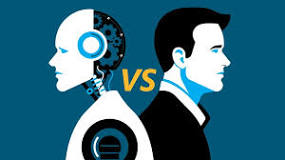Artificial Intelligence (AI) has undoubtedly made remarkable strides in recent years, prompting discussions about its potential impact on various professions. While some voices warn of job displacement and the disappearance of traditional roles, others argue that AI will augment rather than replace human labor. In this blog, we’ll delve into this debate, exploring reasons why certain professions might evolve or diminish in the era of AI.
It’s essential to acknowledge the transformative power of AI in automating repetitive tasks and streamlining processes across multiple industries. Tasks that are routine and rule-based, such as data entry, analysis, and customer service, can be efficiently handled by AI systems. As a result, professions heavily reliant on such tasks may experience a shift, with certain roles becoming obsolete over time. Consider the banking sector, where AI-powered chatbots handle customer inquiries and transactions, reducing the need for human intervention in basic customer service roles. Similarly, in manufacturing, advanced robotics and AI algorithms have revolutionized assembly lines, leading to a decrease in manual labor requirements.
However, the notion that AI will inevitably lead to the extinction of professions overlooks the dynamic nature of employment markets and human adaptability. While AI may automate certain tasks within a profession, it also creates new opportunities and demands for skills that complement technological advancements. For example, the emergence of AI in healthcare redefines jobs within the sector rather than bringing an end to the medical profession. Radiologists can concentrate on complex situations and patient care by using AI algorithms to help with image analysis. Furthermore, there is an increasing need for human experience in managing and inventing AI systems, as evidenced by the spike in demand for cybersecurity specialists, data scientists, and AI specialists. AI also offers prospects for jobs needing human judgment and creativity by improving creativity and decision-making. Creative industries like design, content creation, and art depend heavily on emotional intelligence and innovation—qualities that are uniquely human and difficult to engineer.
In conclusion, even while AI surely changes the nature of many occupations, it would be simplistic to assume that technology and human intelligence will completely replace these careers. People and industries should seize the opportunities provided by AI, concentrating on upskilling and reskilling as well as adjusting to the changing demands of the digital era, rather than fearing the loss of their jobs. We may approach the future of work with hope and creativity if we use AI as a tool for augmentation rather than replacement.
(Visited 2 times, 1 visits today)

